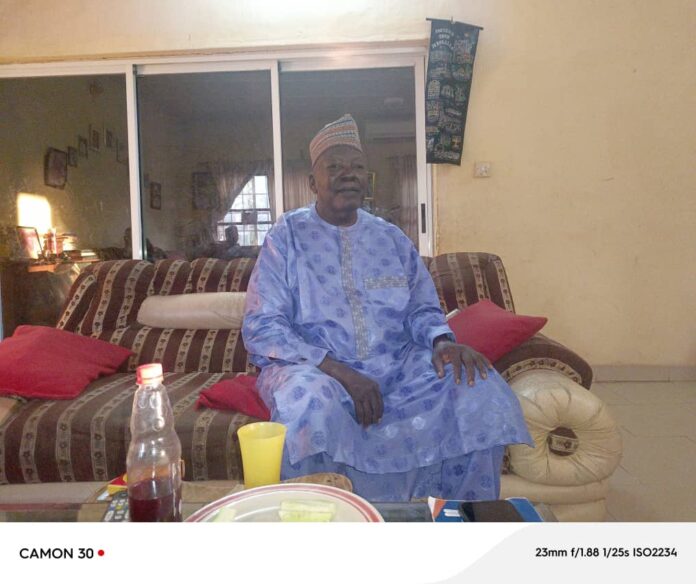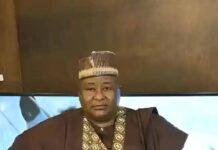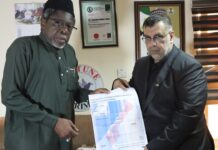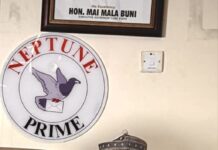Nigerian Leaders Must Return to the Drawing Board: ‘The challenges are too much’ – 83-Year-Old Retired Civil Servant
Story from Kasim Isa Muhammad
Yakubu Tafida, an 83-year-old retired Deputy Director in the Yobe State Government, reflects on his illustrious career as an engineer, civil servant, and elder statesman. Tafida contributed to the Nigerian Army as an engineer during the Civil War and later served as a councillor for Fika Local Government Area in 1994. To advance his expertise, he attended professional courses in the United Kingdom.
In this insightful interview, Tafida shares his experiences in public service and the valuable life lessons that others can draw from his journey.
Neptune Prime: Who is Yakubu Tafida?
You’re asking about my childhood—that’s very interesting. My story spans over eighty years. I was born in Kukar Gadu, a community in Fika Local Government Area of Yobe State, on 4 February 1941. However, I grew up with my uncle, as I lost my parents at a very young age.
I spent my infancy with missionaries after being orphaned. I completed my primary education in Bauchi Province—what is now Bauchi State. Afterwards, I enrolled at the Technical Training School in Bukuru, which is equivalent to what we now call a polytechnic. I specialised in electrical and electronics engineering. After completing my studies, I worked as a technician for Northern Nigeria and later for the Borno Province, holding various positions over time.
During the Civil War in 1972, I served as an engineer with the Nigerian Army, holding the rank of lieutenant. That period was unforgettable and remains one of the most defining experiences of my life. Subsequently, I worked as a project engineer for the Rural Electrification Board. In 1994, I entered politics and served as a Councillor for Fika Local Government Area. I retired in 1997 as a Deputy Director in the Yobe State Ministry of Works.
READ ALSO: Sakina Yazid: Voice of the unheard – An insightful interview on writing and society
I also had the privilege of studying in the United Kingdom, attending courses in Southampton and Nottingham to further my engineering career. Over my professional journey, I worked in several states, including Taraba, Bauchi, Kaduna, Borno, and Yobe.
NP: What are the most significant experiences that shaped your life?
There are many, but growing up as an orphan is perhaps the most defining. My mother died during childbirth, and my father passed away three years later. Being orphaned forced me to navigate life independently. I relied on relatives for support, but there were limits to what they could do.
Self-reliance became a key lesson early on. For instance, I had to persuade my niece to help me enrol in primary school. Later, when I was admitted to senior school, my guardian wasn’t around, so I attended the interview alone. To my relief, I passed, ranking third among the successful candidates.
Another significant moment occurred when my name was mistakenly listed under Bauchi Province instead of Borno Province for school admission. This created a major hurdle, as admissions were based on provincial boundaries. I didn’t let the mistake discourage me; I wrote to the European Education Secretary in Borno, who travelled to Potiskum to assist me. That experience reinforced my belief in persistence and self-advocacy.
NP: What challenges did you face, and how did you overcome them?
Challenges are a part of life. One of my biggest was preparing for marriage. I had to handle everything myself because no one else showed much interest in my affairs. It was tough, but I persevered.
Another challenge was finding work—it wasn’t easy. Hard work, patience, and determination were crucial in overcoming these obstacles.
NP: How did you meet your spouse, and what’s the secret to your long-lasting marriage?
I met her after completing technical school while on holiday. However, our relationship faced initial resistance from our community since we came from the same area. Despite the challenges, we got married and later moved to Maiduguri, where I began working.
The secret to our enduring marriage is patience. We’ve always been patient with each other, and that has been the bedrock of our relationship.
NP: What advice do you have for young Nigerians facing challenges?
My advice is simple: trust in God and focus on self-reliance. Parents and relatives can only support you to a point. Ultimately, you must stand on your own.
During my youth, I worked on farms and sold firewood to earn pocket money. Relying solely on others is not sustainable. Hard work and self-determination are essential for overcoming life’s challenges.
NP: What advice would you give Nigerian leaders, considering the country’s current challenges?
The challenges facing Nigeria are overwhelming—ranging from unemployment and insecurity to a struggling economy. Leaders must return to the drawing board and learn from past leaders who governed with integrity. They should see themselves as servants of the people, not their masters.
Life is short, and engaging in corruption or embezzlement benefits no one. Leadership requires a focus on good governance and honesty.
NP: How do you think the government can improve the lives of Nigerian citizens?
The government needs to be honest with itself and its citizens. Leaders must first turn to God for guidance and remain truthful in their actions and policies.
NP: What legacy do you hope to leave behind?
I want to be remembered for my faith, good character, and positive attitude—qualities that helped me succeed in life and surpass many challenges.
NP: Do you have any final words of inspiration?
“Work hard” has always been my guiding principle. Hard work and trust in God are the keys to a successful life.
NP: What are your favourite hobbies or activities to do in your free time?
I enjoy reading, watching television, and spending quality time with my family. These activities bring me joy and relaxation.
NP: What traditional Nigerian foods do you enjoy the most, and how often do you get to eat them?
I love the traditional dish ‘Tuwo da Miyar Kuka,’ and I eat it quite regularly. It’s one of my favourites.
Follow the Neptune Prime channel on WhatsApp:
Do you have breaking news, interview request, opinion, suggestion, or want your event covered? Email us at neptuneprime2233@gmail.com





